This article is written by Dr Bruno Broughton, an independent, highly experienced fisheries management consultant who operates throughout the UK and in parts of western Europe. You can find out more about Bruno’s experience and as well as contact details at the bottom of this article.
What to look out for when assessing a new lake (and what to avoid)
For many anglers, the ultimate dream is to own a French fishery, somewhere where they, their family and friends can enjoy fantastic sport. Few achieve this ambition, although the demand underpins the health of the fishery ‘market’. Others seek to buy fisheries for alternative reasons, and in the context of this article, I will concentrate on commercial French carp-fishing ventures which will provide a good income. For some, the money derived from a fishery or fisheries will represent an important supplement to their pensions!
Buying a carp lake in France may seem to be a straightforward process, but it is not quite that easy, of course, and some serious research will pay for itself many times before you actually start spending serious money or – worst – waste your funds on a completely unsuitable site. If you are currently looking at carp lakes in France for sale, you can view listings here.
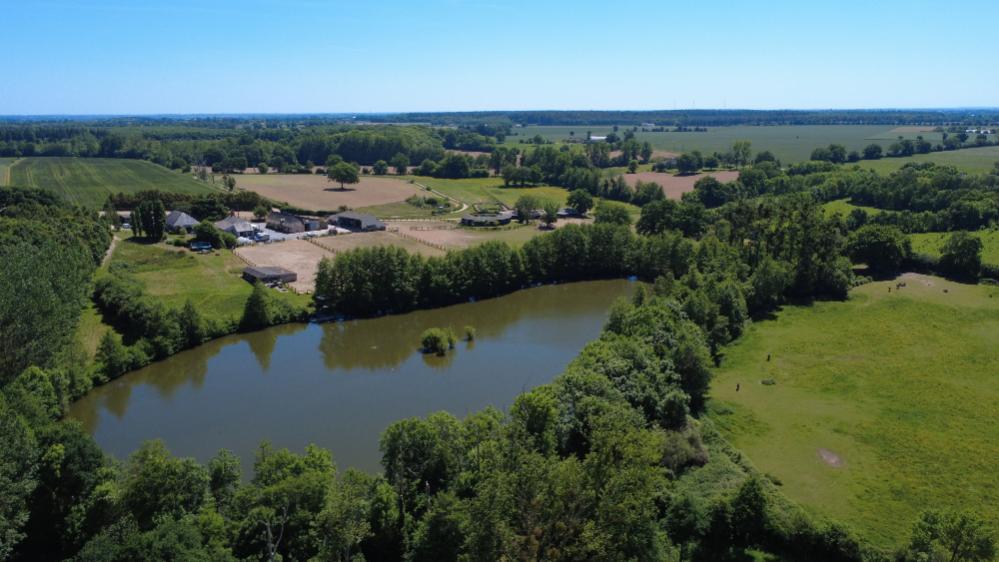
It is critical to do thorough research when buying a French carp fishery
Match The Catch – choose a fishery that appeals to the general ‘holiday carp angler’
It is well worth remembering that as your ambition will be to generate significant income from the French fishery, you will, in effect, be running a small business. Your preferred style of fishing or type of venue may not align with that of a sufficient number of paying visitors to make the venture profitable. Assessing and understanding your potential customer base is vital – ‘match the catch’, if you will. A ‘dingle dell’, feature-filled lake may not be able to accommodate a significant number of anglers fishing simultaneously; a steep-sided, deep fishery would be unsuitable for family groups; and a small pond will be incapable of generating a substantial income unless it’s enlarged.
Of course, if anglers currently fish the venue, it should be relatively easy to gauge its popularity. A pre-arranged site visit on a weekend day, perhaps, and a few chats with those fishing is the obvious approach. A natter with staff in any nearby tackle shop may also prove helpful… but pick a quiet time and avoid busy periods.
Have a gander via Google to see if you can find reviews, catch reports or other information that will add detail to your portfolio. It’s surprising what an internet search can produce as almost all carp lakes in France that are run as business will have an internet footprint, ranging from the negative (recent fish mortalities or otter predation issues, for example) to the positive (such as recent big catches or glowing reports on forums).

Look at catch reports to validate the fish stock
Location is key when buying a French carp fishery
A key consideration when buying a carp lake in France is the geographic area in which you are interested. Water bodies close to home will be easier to manage and to keep secure, considerations which may become problematic at far-away fisheries. Potential issues with poachers, vandals and thieves will be avoided or minimised at well-chosen sites.
‘Country-retreat’ lakes far away from urban conurbations can make excellent and profitable sites for developing holiday fishery businesses, with visitor accommodation provided through bankside ‘pods’, caravans, cabins, or lodges. Indeed, fisheries set in picturesque, rural locations tend to have that ‘wish I was there’ appeal, making the ‘package’ more appealing and exciting.
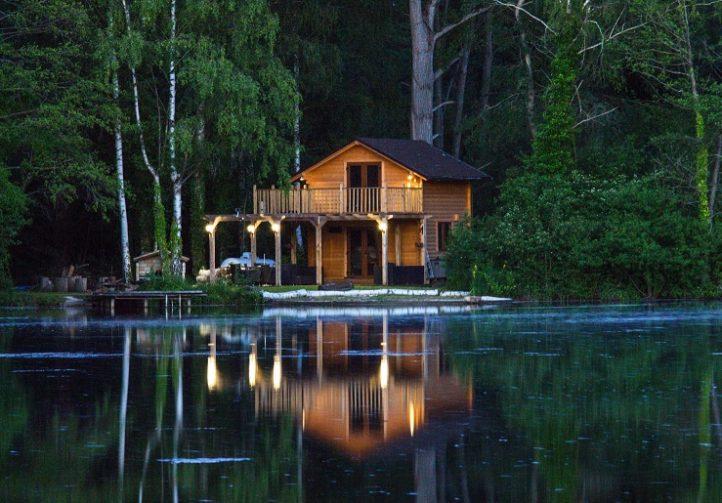
Lakes with accommodation can be very popular
Living very near or on such sites is usually necessary, however, be that by the owner or someone employed to look after the fishery. Visitors usually value good but discrete customer care – ‘meet and greet’, fishing tips, reassuring security and, in the event of accommodation equipment failure or personal emergencies, timely intervention.
Consider the location in terms of travel convenience for your customers. With hundreds of fisheries across France offering similar packages, travel time can be a key deciding factor for anglers. As a general rule, fisheries primarily targeting anglers rather than families benefit from being closer to Calais. If your venue is within a four-hour drive of Calais, distance is unlikely to be an issue.
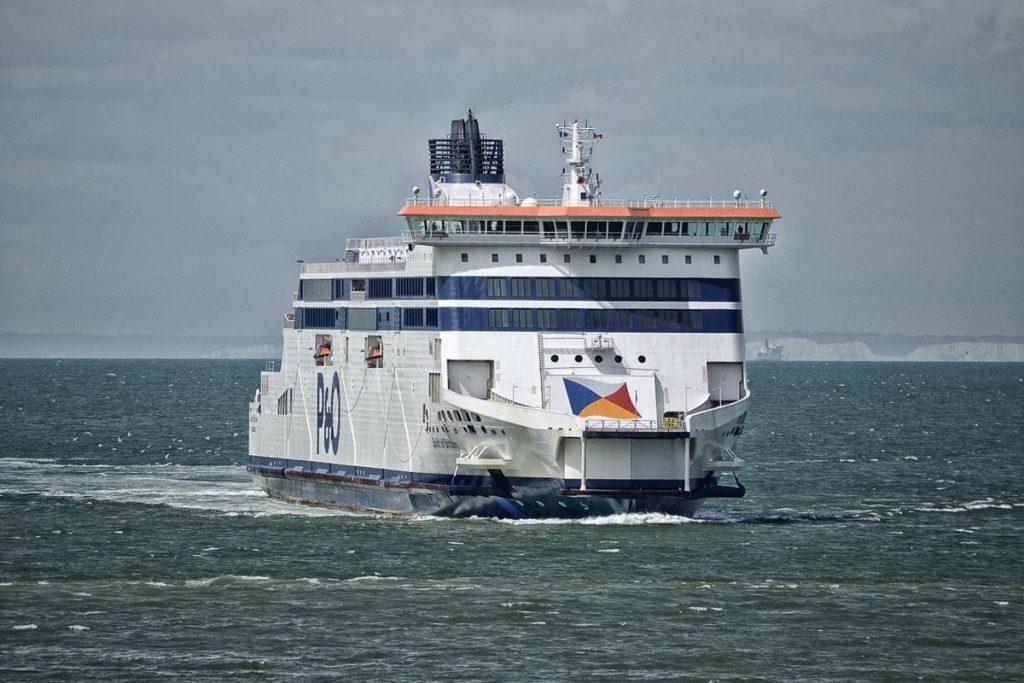
Lakes closer to ferry ports like Calais are generally more popular with anglers
Many anglers also opt for the Friday night ferry from Portsmouth to Caen, Le Havre, or St Malo—ports along France’s west coast in the Brittany region. Although the crossing is longer, it’s often preferred as it allows guests to relax in the ferry bar or sleep in a cabin, arriving fresh on Saturday morning. Venues within a few hours of these ports are also considered convenient and appealing.
For angler-focused venues located further south—especially in regions like Limousin—bookings can be harder to secure unless you offer something exceptional, such as an average fish weight over 40lbs and a big head of 60–70lb carp. However, family-oriented venues in southern France with quality accommodation and features like swimming pools tend to do very well. Despite the longer journey, the consistently warm summer weather makes these destinations more attractive to families and non-angling guests.
Keep Your Ear To The Ground
Local estate agents may hold details of many (or any) fisheries for sale. That said, a large number of purchases take place privately, and many fisheries are never offered on the open market. Take this example: every year regular angler Andy asks fishery owner Owen if he will sell his lake because Andy would like first refusal. Year after year the answer is the same negative one until, one red-letter day, Owen invites Andy in for a private chat. The first other anglers are aware of any change is when the sale has been completed. I’ve come across this scenario quite a lot in my fisheries work!
For this reason, you’d be best advised to put out as many feelers as possible and keep your ears to the ground. Ideas include: scanning the ‘small ads’ sections of the local and regional press; searching in the farming and small-holders’ magazines; contacting land agents and ensuring that they have your details on file; asking major land-owners; and (again) conducting internet searches. Let people know you’re on the lookout for a fishery and, without becoming a pest, renew your inquiries periodically. They won’t know you’re looking unless you tell them.
Some Key Considerations Before You Commit
If and when you find a suitable fishery at what looks like the right price, find out about the many issues that are or could be important. A good maxim is to check that the claims made in the sales particulars are actually true and have not been exaggerated for selling purposes. For example, verify that the site and the fishery are the claimed size by measuring it yourself using a free, interactive mapping site – Google Maps is excellent (and dead easy to use!). I’ve been to lakes that were said to be eight and three acres in size, only to find that, when mapped correctly, they covered only four and not much more than one acre, respectively!
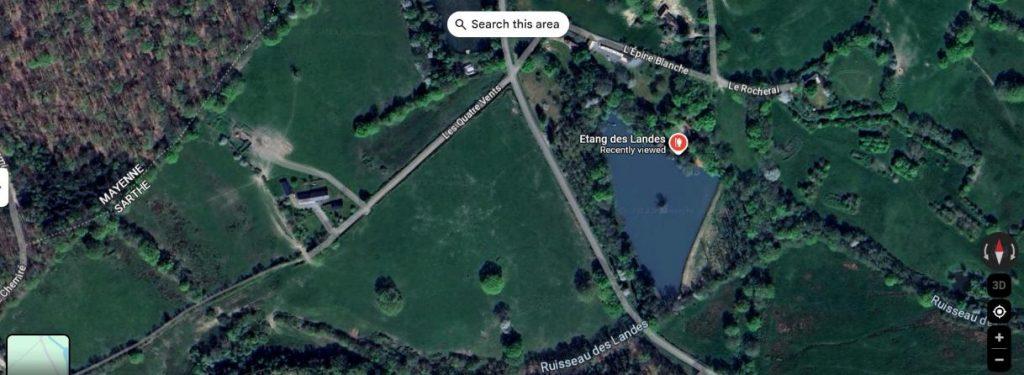
Google earth is a superb resource validate the lake size
Discover if the site floods in winter or if the water level drops dramatically in summer. Is angling restricted by overhead electricity cables or is expansion of the water area handicapped by underground utility services? Are you about to buy a notorious feeding ground for otters? Is there a history of poor water quality? In the case of impoundments, is the dam safe or liable to regular inspections by a qualified engineer? Are any monks or sluices in working order and can they cope with an influx of extra water in very wet weather? Does anyone else have a right to be on site… to abstract water, for example?
Although the conveyancing process should reveal many of the issues that are important when purchasing a French fishery, it is essential a check is made to ensure that the seller actually owns the fishery and that the site has planning consent for recreational use. Yes, these are obvious but fundamental points.
Undertake Reasonable Due Diligence to Validate the Fish Stock
One of largest potential obstacles is establishing that the fish stocks are what is claimed. On smaller bodies of still water, it may be possible to agree a purchase price that excludes the fish, the costs of which are calculated from a stock-taking netting and/or electric-fishing survey. At the very least, try to talk to existing anglers to ascertain that their catches tally with the sale particulars.
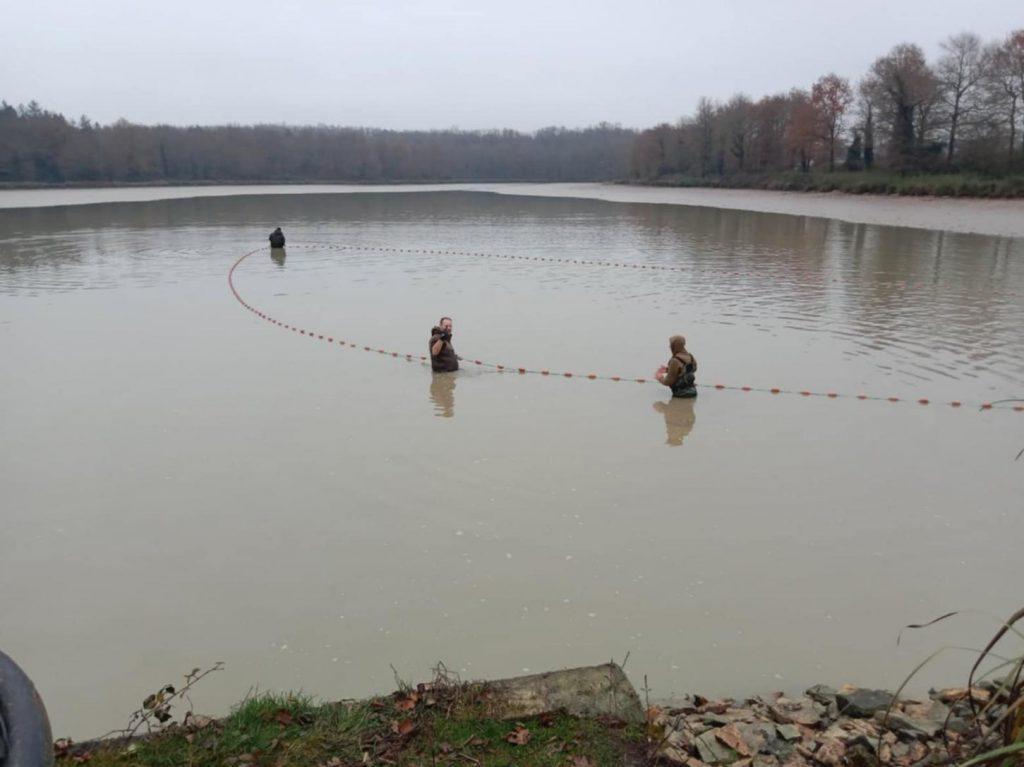
A condition of the sale could be to arrange for the lake to be netted to price the fish stock
Although this scenario is not common, occasionally an unscrupulous owner will net and remove fish, particularly specimen-sized carp, in the run-up to handing the site over to the new owner. The operation is usually below the radar, as it were. The new owner may be blissfully unaware of the hookwink until, many months later, the penny slowly drops and it’s way too late to do anything about it.
It’s The Business
When buying a fishery as a business, it’s a good idea to identify and weigh up the existing competitors. Your ‘offering’ really needs to be sufficiently different to draw anglers to it and to retain their custom.
Treat any claimed income from a site with caution unless you can see proper accounts. Look at the figures with open eyes. Commercial fisheries are cash businesses, with all the pros and cons that go with that, and overheads and expenses may remain unrecorded or minimized when written down to make a floundering venture appear to be very profitable. This is particularly relevant given the current economic climate and the knock-on impacts on the leisure industry.
If in doubt about the veracity of what you are told or see on paper, turn on your heels and walk away from the deal. After all, you’re only going to spend your money once.
Professional Help
Finally, consider enlisting the help of an experienced professional – such as myself! – who specialises in fishery appraisals, preparing business plans and providing detailed fisheries management advice. My charges are modest, and I always provide a fixed-fee, written quote for any proposed work. Wise advice usually represents excellent value-for-money!
Dr Bruno Broughton – B.Sc. (Hons), Ph.D., F.I.F.M., C.Env.
Dr Bruno Broughton is an independent, highly experienced fisheries management consultant who operates throughout the UK and in parts of western Europe. Through his advisory work spanning 38 years Bruno has undertaken assignments for more than 2,300 clients, most of which originate from personal recommendation. He specialises in: providing ‘blueprint’ information on the design, formation and development of new fisheries; valuing lakes and rivers prior to sale, purchase or lease; securing secure planning consent for managers’ dwelling at fisheries; providing comprehensive fisheries management advice on a huge range of topics; and acting as an expert witness in pollution-related litigation and at planning appeals.
Contact details:

Dr Bruno Broughton, 2 The Crofters, Post Office Lane, Moreton, Newport, Shropshire TF10 9EG.
Tel: 01952 691515;
Mobile: 07804 651402
Email: bruno.broughton21@gmail.com
Website: www.bruno-broughton.co.uk